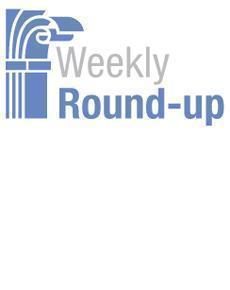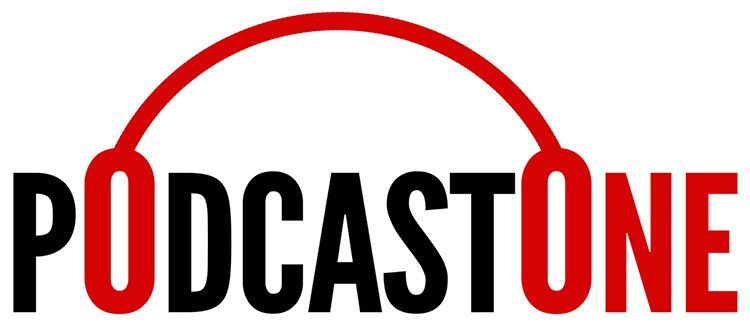
Weekly Roundup: May 25-29, 2020

John Kamensky
More Productive? Federal Times reports: “At the onset of the coronavirus pandemic, there were concerns that mass telework would reduce the productivity of federal employees. But about two months later, some top IT officials at federal agencies haven’t seen productivity worsen. . . . According to the chief information officers at the departments of Agriculture and Transportation, the productivity hasn’t fallen since employees there began working from home, raising questions about what the future of work looks like for federal employees when they return to the office.”
A New NSF? NextGov reports: “Bipartisan legislation introduced Wednesday would restructure the National Science Foundation to focus on emerging technologies and infuse the federal agency with $100 billion in funding over the next five years. . . . The bicameral Endless Frontier Act, . . . would rename the National Science Foundation to the National Science and Technology Foundation and create a new technology directorate within the rebranded agency. . . . The new directorate would receive $100 billion over five years to lead investment and research in 10 core areas,
GAO waste reduction. Federal News Network reports: “For the past nine years, GAO has pointed to more than 900 actions that either Congress or agencies themselves could take to reduce, eliminate or better manage areas of fragmentation, overlap and duplication across government programs. . . . The efforts agencies have taken to date have saved $429 billion, GAO said.”
Defense Logistics Agency Use of RPAs. FedScoop reports: “The Defense Logistics Agency has saved more than 200,000 labor-hours with the 82 robotic process automation (RPA) bots it has launched in the past year, its CIO says. . . . The bots that have been deployed so far at DLA are the result of 20-person team dedicated to pushing out innovative technology to lessen the burden on the workforce.”
Brookings Study on Reopening America. A new report comprised of a series of essays by senior fellows at the Brookings Institution offers insights into what next steps might be in responding to the COVID-19 crisis. Essays touch on health, economic, societal and public sector impacts and include resources such as playbooks being developed for restarting the economy and scenario planning for future pandemics.
Michael Keegan
Remote leadership isn't a fad, so get good at it. Build trust and engagement with your virtual team by giving them credit for their accomplishments, using humor, treating them with respect and calling them out by name to contribute their insights, says S. Chris Edmonds in this blog post and video. "Grasping and developing these nuanced approaches to drawing out teamwork and collaboration from a distance is not a passing stopgap but a permanent, nonnegotiable characteristic of values-based leaders," he says. SmartBrief/Leadership
GAO plans review of telework tech. The Government Accountability Office plans to examine agency lessons learned from ramping up telework as part of pandemic response. Nick Marinos, GAO's director of Information Technology and Cybersecurity, said on a May 27 virtual conference that the oversight body plans on reviewing how agencies implement such solutions in the coming months, to find how effective they are. Agencies have been ramping up use of teleconferencing tools, such as Zoom, Teams and other programs. They're also using cloud solutions, virtual private networks and extending applications to employees to use on their own devices.
What the Future of Office Design Might Look Like Now: Architects and designers are rethinking the workspace for the age of coronavirus. The coronavirus pandemic might have some long-term effects on the way we design our offices. As companies look to incorporate better sanitation and implement some of the things they've learned during the crisis, many aspects of the office could change--from the materials used for upholstery to the overall layouts of floor plans. "People are asking existential questions like, 'What is the purpose of an office?' " says Nabil Sabet, engineer and group director at international design firm M Moser. "Some of the habits that we thought would take years to overcome are changing overnight."
Challenge your assumptions by asking "What if?". Recovering from the pandemic should include asking tough questions about what your business is spending time on, how it would handle multiple years of social distancing, and other "What if?" questions, writes Scott Eblin. "It's really a process of unlocking assumptions to the point where creative thinking about different possible scenarios can truly begin," he writes. Eblin Group
3 tips for risk reduction that's more effective. Safety instructions and rules don't always create improvements, largely because they often cause people to create a different problem -- a phenomenon called risk compensation. To reduce risk, ask whether intervention is necessary, try to make any fixes unnoticeable or use incentives to drive positive, alternate behaviors. Farnam Street
In COVID relief, lawmakers look to help states with legacy IT. A bipartisan group of lawmakers is urging House leaders to include funding for states to modernize their technology infrastructure with an eye to a cloud-first approach, shared services that deliver functionality to cities and towns and some oversight of state technology plans as a condition of receiving funding.
Lawmakers look to retool NSF for tech. Competition with China is at the center of a bipartisan $110 billion plan to boost technology research and development by a dramatic reorganization of the National Science Foundation.
****
Next Week on The Business of Government Hour: A Special Series focusing on Leading Through Uncertain Times with Jeremy Gutsche author of Create the Future: Tactics for Disruptive Thinking. What are the seven traps of path dependency? How do you think disruptively, providing specific steps to create real innovation and change? How can it be used during times of uncertainty? Join host Michael Keegan as he explores these questions and more on a Special Edition of The Business of Government Hour.
Broadcast Schedule: The show airs Monday at 11 a.m., and Friday at 1 p.m. on Federal News Network 1500AM WFED
Anytime, Anywhere on...
https://www.podcastone.com/the-business-of-government-hour
https://itunes.apple.com/us/podcast/the-business-of-government-radio-hou





